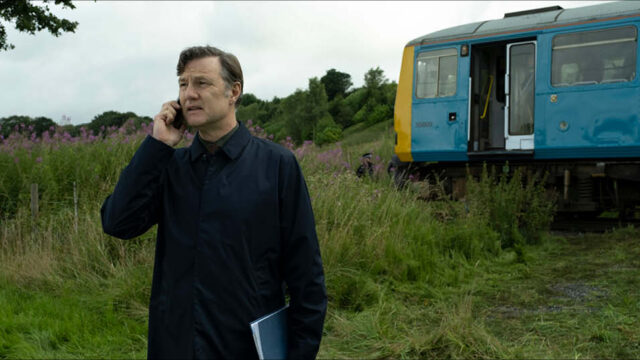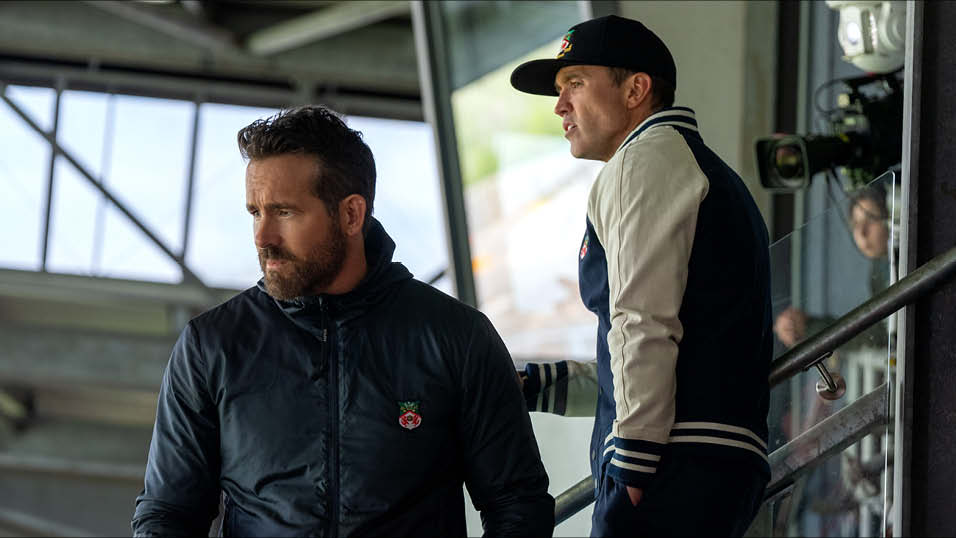House Productions headed to Nottingham for its new James Graham-penned crime thriller, Sherwood, for the BBC. Pippa Considine reports
“I’d had this story inspired from my local community rumbling around my head for 10 years,” says Nottingham-born writer James Graham. Having worked with Graham on Brexit: The Uncivil War, House Productions wanted to help him turn his rumble into a TV drama.
The resulting six-part series, Sherwood, is based on two unrelated murders in Nottingham in 2004, which brought back memories from the miners’ strikes of the early ‘80s. “It felt really valuable to be exploring our recent past and things that upset and provoke us,” says Graham, who immersed himself in research to create a detailed and empathetic picture.
Former BBC director of drama Piers Wenger greenlit the project in 2019, at early development stage. “I have very affectionate memories of great, state of the nation, long-running dramas with the BBC,” says Graham, citing Alan Bleasedale’s 1982 Boys from the Black Stuff.
Graham thrashed out the plot with colleagues in a way that smacks of a police incident room scene. “Juliette Howell, Harriet Spencer, Tessa Ross would be in a room, and we’d put sheets on the wall and pace around with a marker pen.” Assuming that someone would die in the first episode, the plot engine for the rest of the series was a manhunt. “We knew who the killer was – whodunnit – but not whydunnit.” The story of community and the dark mystery of spy cops were secondary elements.
Director Lewis Arnold joined the brainstorm sessions. “When Lewis came on board, he started to interrogate the script in a different way,” says exec Juliette Howell. She describes Arnold’s approach as “exacting” and “rigorous,” but also open. “With James, it’s very collaborative and we needed someone who could also work in this way.”

Arnold brought with him a loyal team of collaborators including editor Sacha Szwarc, casting director Victor Jenkins and production designer Anna Higginson.
In the first design meetings, they established a need to avoid cliches of grim streets in the Midlands. Instead, they wanted “scale, a sense of cinema, through the use of landscape in particular,” says Howell. True Detective and Mare of East Town were referenced.
“We made a clear decision early on that we wouldn’t set build,” says Arnold. It helped that his last project was BBC drama Time, with Jimmy McGovern, where he had been shooting inside prison cells. “I didn’t feel particularly anxious in some of the smaller terraced houses.”
While some scenes were shot in and around Nottingham, it was Manchester – with its TV infrastructure – that doubled for Nottingham for much of the filming.
The six-episodes were shot in two blocks of just over eight weeks each. Arnold directed the first block, Ben A Williams the second.
Scheduling the shoot required patience and imagination, with Covid protocols paring down the numbers on location and making the fine timing of some cast members close to unworkable. Lesley Manville was also shooting The Crown with Left Bank Pictures, in Prague. “The generosity of other productions made it happen,” says Howell.
The production used Alexa cameras and anamorphic lenses, shot 2:1, rather than full anamorphic. They filmed ‘80s period piece flashbacks using 16mm lenses and graded slightly differently.
The opening sequence of the series changed over time. “We decided that the audience needed to have context early on,” explains Arnold. Episode one starts with haunting sound and a blend of stock footage from the ‘80s strikes.
Central to the plot are two men hiding in the forest. Arnold talks about the forest as a character and feels that it lends a sense of history. “I tried to put in an element of the forest and woodland even in smaller locations, looking to bring in wilderness and the wild and to allow that to foreshadow.”
For both Graham and Arnold, the storytelling was an ongoing process throughout the production. “I was still writing a lot of the second block whilst filming the first block,” says Graham, “I would find myself with David Morrissey of an evening still talking about upcoming elements and particularly about his back-story, and adding more detail.” Arnold felt compelled to sneak into the second block of filming, so that he could add beats to various scenes and rebalance earlier episodes.
The BBC listened to the production team on scheduling. Releasing two episodes a week went against the trend to drop a series on iPlayer, but reflects the eighties theme. “It speaks to a time when people did gather round more collectively,” says Graham.
DETAILS
Broadcaster: BBC
Production company: House Productions, BBC Studios
Commissioners: Charlotte Moore, Piers Wenger
Writer: James Graham
Executive producers: Lewis Arnold, James Graham, Juliette Howell, Tessa Ross, Harriet Spencer, Ben Irving
Directors: Lewis Arnold, Ben A Williams
Producer: Rebecca Hodgson
Cinematography: Sam Care, Simon Archer
Editor: Sacha Szwarc, Sam White
Casting director: Victor Jenkins
Production designer: Anna Higginson
Supervising location manager: Jessica Dove
Lead cast: Lesley Manville, David Morrissey, Robert Glenister
Colourist: Aidan Farrell
Pippa Considine
Share this story


















